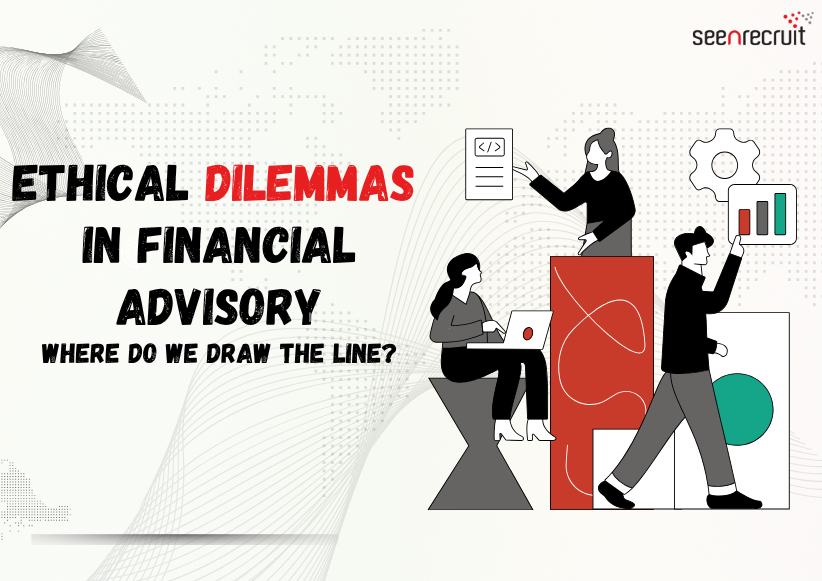Ethical Dilemmas in Financial Advisory: Where Do We Draw the Line?

Financial advisors often face complex ethical dilemmas that impact trust, compliance, and client relationships. Let’s explore where to draw the line between profit and integrity, highlighting transparency, fiduciary duty, and responsible decision-making in the financial services industry.
The expanding scope of financial services has placed unprecedented responsibility on financial advisors. They are not just wealth managers but trusted partners guiding individuals and businesses through investment decisions, retirement planning, and wealth preservation. Yet, as trust deepens, so do the ethical dilemmas in financial advisory. The real question is: Where do we draw the line between business growth and ethical responsibility?
The financial services industry thrives on trust. Clients depend on advisors to act in their best interest, often disclosing deeply personal information about income, assets, and long-term goals. However, conflicts of interest, commission-driven recommendations, and a lack of transparency can blur the ethical boundaries. Key ethical principles for advisors include:
When these principles are compromised, client trust erodes, and long-term reputations are at stake.
Unethical practices may bring short-term gains but carry long-term consequences:
To navigate these dilemmas, financial advisors and firms must adopt proactive strategies:
As digital banking, fintech startups, and AI-powered advisory platforms grow, the industry faces new ethical tests. Regulators worldwide are tightening compliance norms, while clients are demanding more transparency and sustainable investment options.
The future belongs to advisors who can combine financial expertise with ethical responsibility—because in a world where wealth management is commoditised, trust remains the ultimate differentiator.
Ethical dilemmas in financial advisory are not going away. In fact, with innovations in wealth tech, robo-advisory, and ESG investing, the challenges will only grow more complex. The line must be drawn where integrity meets accountability. Financial advisors who embrace this balance will not only build stronger client relationships but also future-proof their careers.